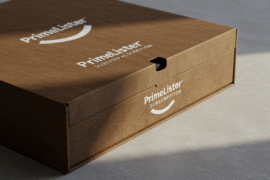This article may contain references to products or services from one or more of our advertisers or partners. We may receive compensation when you click on links to those products or services. Nonetheless, our opinions are our own.
The information presented in this article is accurate to the best of our knowledge at the time of publication. However, information is subject to change, and no guarantees are made about the continued accuracy or completeness of this content after its publication date.
Key Highlights
- Quicken simplifies budgeting, expense tracking, and investment management.
- It integrates securely with online banking, consolidating all financial accounts in one place.
- Users can create budgets, set financial goals, and analyze spending patterns effortlessly.
- Customizable reports provide insights into your financial health and progress.
- Quicken supports rental property management and small business finances, making it versatile.
- It is available on both desktop and mobile platforms for flexibility and convenience.
Introduction
Managing your finances effectively is essential in today’s fast-paced world. Quicken, a leading personal finance software, helps individuals control their money with ease. From budgeting and tracking expenses to monitoring investments, Quicken offers a suite of tools designed to simplify financial management. In this article, we’ll explore its features, benefits, and whether it’s worth the investment for your budgeting needs.
Understanding Quicken’s Role in Personal Finance
Quicken serves as a centralized hub for managing your finances. It securely connects to your bank accounts, credit cards, and investment accounts, consolidating all your financial information in one location. With Quicken, you can:
- Track transactions and balances across accounts.
- Monitor spending habits and identify areas for improvement.
- Set and manage financial goals with ease.
More than just a budgeting tool, Quicken empowers users with detailed insights into their financial health.
What Makes Quicken Stand Out?
- Comprehensive Features: Quicken offers advanced tools for tracking expenses, managing rental properties, and monitoring investments.
- Flexibility: It is available on desktop and mobile platforms, offering offline functionality and on-the-go access.
- Investment Tracking: Quicken provides robust tools to analyze portfolio performance and plan for long-term financial goals.
- Advanced Reporting: Customizable reports allow users to gain a clear understanding of their financial progress and patterns.
Comparing Quicken to Other Budgeting Tools
| Feature | Quicken | Mint | QuickBooks |
|---|---|---|---|
| Target User | Individuals & SMBs | Individuals | Small Businesses |
| Platform | Desktop & Mobile | Web & Mobile | Desktop & Cloud |
| Investment Tracking | Yes | Limited | No |
| Rental Property Management. | Yes | No | No |
| Free Version | No | Yes | No |
- Quicken: Best for comprehensive personal finance management, including investment tracking and rental property management.
- Mint: Ideal for basic budgeting and expense tracking, especially for users seeking a free solution.
- QuickBooks: Designed primarily for small business accounting and payroll management.
Voted "Best Overall Budgeting App" by Forbes and WSJ
Monarch Money helps you budget, track spending, set goals, and plan your financial future—all in one app.
Get 50% OFF your first year with code MONARCHVIP
Getting Started with Quicken: A Beginner’s Guide
Step 1: Gather Essential Information
To get started, prepare the following:
- Financial Documents: Recent bank statements, credit card records, and investment account details.
- Budget Framework: A rough outline of your income and expenses for quick setup.
- Transaction History: Recent transactions to ensure accurate account balances.
Step 2: Set Up Your Quicken Account
- Download and install Quicken.
- Create an Intuit account and select a subscription plan based on your needs.
- Link your bank accounts securely to import transaction data automatically.
- Customize categories and financial goals for a personalized experience.
Step-by-Step Guide to Creating a Budget in Quicken
Step 1: Input Financial Information
Link your accounts to Quicken. The software will sync transaction data automatically. For older transactions, manual entry is an option.
Step 2: Categorize Spending
Quicken offers default spending categories, but you can customize them to match your habits. For example:
- Under “Housing,” add subcategories like “Mortgage,” “Utilities,” and “Repairs.”
Ensure all transactions are categorized correctly to gain a clear view of your expenses.
Step 3: Set Budget Goals
Define specific financial goals, such as saving for a vacation or paying off debt. Use Quicken’s visual tools to track your progress and stay motivated. Adjust your goals as your financial situation evolves.
Maximizing Quicken for Effective Budget Management
Tracking Expenses
Quicken simplifies expense tracking by syncing transactions from linked accounts. You can edit transaction details, split expenses across categories, and add notes for context.
Analyzing Spending Patterns
Generate detailed reports and charts to identify spending trends. For instance, if dining out exceeds your budget, Quicken can alert you to adjust your spending or allocate funds differently.
Visual Insights
Quicken’s dashboard provides an overview of:
- Account balances.
- Upcoming bills.
- Spending limits.
This real-time data helps you make informed financial decisions.
Conclusion
Quicken Personal Finance stands out as a powerful tool for managing your budget and overall financial health. Its robust features, such as expense tracking, goal setting, and investment monitoring, make it suitable for beginners and experienced users alike. While it requires a subscription, the value it offers justifies the cost for anyone serious about achieving their financial goals. Take the first step towards smarter budgeting—explore Quicken today.
Frequently Asked Questions
Is Quicken suitable for all types of budgeters?
Yes, Quicken caters to both beginners and advanced users, offering customizable tools for every financial need.
How secure is Quicken?
Quicken uses bank-grade encryption to protect your financial data, ensuring a safe user experience.
Can Quicken track investments?
Absolutely. Quicken provides tools to monitor portfolio performance, analyze trends, and manage investment goals.
Is there a free version of Quicken?
No, Quicken requires a subscription. However, it offers various plans to suit different financial needs.
How often should I update my Quicken budget?
It’s recommended to update your budget monthly and review spending habits regularly to stay on track.

Reviewed and edited by Albert Fang.
See a typo or want to suggest an edit/revision to the content? Use the contact us form to provide feedback.
At FangWallet, we value editorial integrity and open collaboration in curating quality content for readers to enjoy. Much appreciated for the assist.
Did you like our article and find it insightful? We encourage sharing the article link with family and friends to benefit as well - better yet, sharing on social media. Thank you for the support! 🍉
Article Title: Quicken Personal Finance: Is It Worth the Investment for Budgeting?
https://fangwallet.com/2025/02/06/quicken-personal-finance/The FangWallet Promise
FangWallet is an editorially independent resource - founded on breaking down challenging financial concepts for anyone to understand since 2014. While we adhere to editorial integrity, note that this post may contain references to products from our partners.
The FangWallet promise is always to have your best interest in mind and be transparent and honest about the financial picture.
Become an Insider

Subscribe to get a free daily budget planner printable to help get your money on track!
Make passive money the right way. No spam.
Editorial Disclaimer: The editorial content on this page is not provided by any of the companies mentioned. The opinions expressed here are the author's alone.
The content of this website is for informational purposes only and does not represent investment advice, or an offer or solicitation to buy or sell any security, investment, or product. Investors are encouraged to do their own due diligence, and, if necessary, consult professional advising before making any investment decisions. Investing involves a high degree of risk, and financial losses may occur including the potential loss of principal.
Source Citation References:
+ Inspo











































